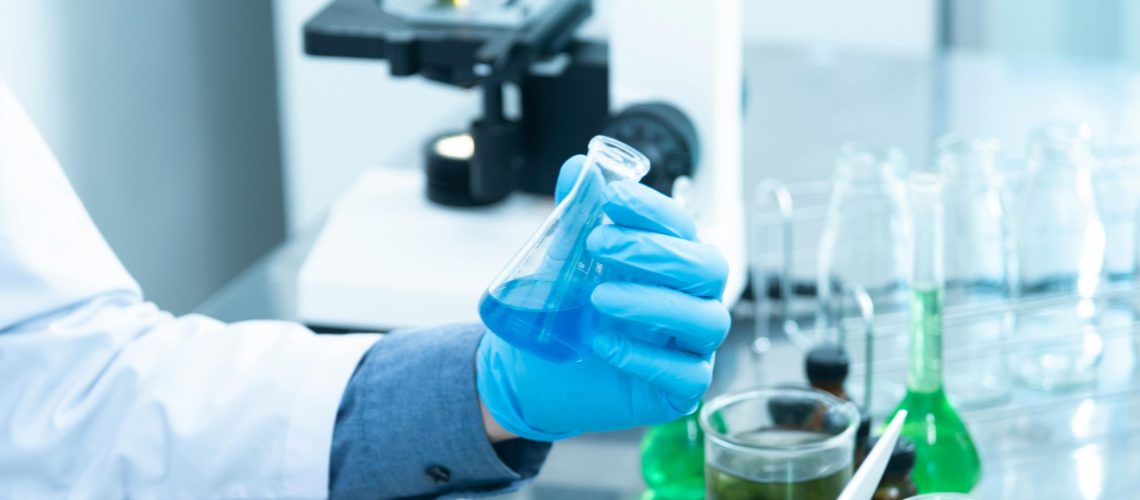Becoming a laboratory technician is a rewarding career choice for those interested in science, healthcare, and technology. Lab technicians are vital in research, medical testing, and industry quality control, making them essential in various fields. According to the U.S. Bureau of Labor Statistics, employment of clinical laboratory technologists and technicians is projected to grow 5% from 2023 to 2033, about as fast as the average for all occupations. In 2023, the median annual wage for clinical laboratory technologists and technicians was $60,780, with about 24,200 openings projected yearly due to the need to replace workers who transfer to different occupations or exit the labor force, such as to retire.
What Does a Lab Technician Do?
Lab technicians work in various settings, including hospitals, research facilities, environmental laboratories, and manufacturing plants. They are responsible for conducting tests, operating equipment, and analyzing data to support scientific research, clinical diagnoses, and quality control.
Key Responsibilities of a Lab Technician
- Sample Preparation and Analysis: Lab technicians prepare samples, such as blood, water, soil, or chemicals, for testing and analysis. They follow precise procedures to ensure the accuracy and reliability of test results.
- Operating Laboratory Equipment: Lab technicians operate and maintain laboratory instruments, including microscopes, centrifuges, and chromatographs. Ensuring that equipment is calibrated and functioning correctly is critical to the accuracy of the results.
- Recording and Interpreting Results: Lab technicians record test results and analyze data. They must interpret the findings accurately and report them to supervisors or scientists for further investigation or treatment decisions.
- Ensuring Safety and Compliance: Lab technicians adhere to strict safety guidelines to prevent contamination, injury, or accidents. They ensure proper sterilization techniques and that hazardous materials are handled according to regulatory standards.
- Collaborating with Other Professionals: Lab technicians work closely with scientists, doctors, and other healthcare professionals to discuss findings and contribute to ongoing research or treatment plans.
Educational Requirements
There are several educational pathways to becoming a lab technician, including associate degrees, bachelor’s degrees, and certification programs. Your chosen path may depend on the field you wish to work in, such as medical, environmental, or industrial laboratories.
Common Educational Paths
- Associate Degree: The most common entry-level qualification for lab technicians is an associate degree in medical laboratory technology, clinical laboratory science, or a related field. This program typically lasts two years and includes coursework and hands-on clinical training. Students learn about biology, chemistry, microbiology, and lab techniques. Additionally, students gain practical experience working in a clinical setting.
- Bachelor’s Degree: A bachelor’s degree in medical technology or laboratory science is another option for those seeking more advanced opportunities. This program usually takes four years and includes more in-depth biochemistry, hematology, and molecular biology courses. A bachelor’s degree can provide more career advancement opportunities and eligibility for supervisory roles.
- Certification Programs: Certificate programs can provide specialized training in specific laboratory techniques for those with a degree in a related field. These programs often focus on advanced technologies and fields such as pathology or radiology.
Essential Skills for Lab Technicians
Lab technicians need technical expertise, critical thinking, and strong communication skills to succeed. Below are some of the most essential skills required for the role:
Technical Skills
- Lab Techniques: Mastery of standard lab techniques, such as pipetting, centrifugation, and spectroscopy, is essential for accurately conducting experiments and obtaining reliable results.
- Data Analysis: Lab technicians must be able to analyze data and interpret results. This includes using software tools like Excel or specialized laboratory management software.
- Equipment Maintenance: Technicians must know how to maintain and troubleshoot laboratory equipment to ensure it operates efficiently. They should also be familiar with routine cleaning and calibration processes.
Soft Skills
- Attention to Detail: Small mistakes can lead to significant errors in a laboratory setting. Lab technicians must be meticulous in every task, from sample preparation to data entry.
- Problem-Solving: Lab technicians often encounter unexpected challenges, such as malfunctions or inconclusive results. The ability to identify problems and propose solutions is essential.
- Communication Skills: Lab technicians must be able to communicate complex findings to supervisors, scientists, and medical professionals. This skill is essential in medical laboratories, where accurate information is critical for diagnosis and treatment.
- Time Management: Lab technicians often work under pressure with tight deadlines. Being able to prioritize tasks and work efficiently without compromising the quality of work is a valuable skill.
Certifications and Licensing
While certification and licensing requirements vary by region and specialty, earning credentials can enhance your job prospects and demonstrate your expertise.
Common Certifications
- American Society for Clinical Pathology (ASCP): The ASCP offers certification for laboratory professionals, including lab technicians. Obtaining ASCP certification can enhance your resume and make you a more competitive candidate.
- National Accrediting Agency for Clinical Laboratory Sciences (NAACLS): This organization accredits educational programs for laboratory technicians and provides a certification exam for those who complete accredited programs.
- State Licenses: Lab technicians may need a state license depending on the region. Licensing requirements often vary by state and may involve passing an exam and fulfilling continuing education requirements.
Building a Strong Lab Technician Resume
Your resume is one of the most essential tools in landing a lab technician job. Here are key sections to include on your lab technician resume to make it stand out:
1. Professional Summary:
Start with a summary that highlights your career goals and key qualifications. Focus on your education, certifications, and experience in the laboratory field. For example: “Detail-oriented lab technician with over three years of experience in medical and environmental testing. Proficient in laboratory procedures, equipment maintenance, and data analysis. Certified by the ASCP, committed to quality and safety in the lab.”
2. Skills Section:
List your technical and soft skills. Tailor this section to match the job description and emphasize skills relevant to the specific lab technician role.
3. Work Experience:
Detail your previous roles, including job title, company name, dates of employment, and specific responsibilities. Focus on achievements that demonstrate your impact, such as:
- Reduced sample processing time by 15% through streamlining lab procedures.
- Maintained 100% compliance with safety standards during lab operations.
4. Education:
Include information about your educational background, such as your degree, the institution’s name, and your graduation date. You can also list any relevant coursework or honors.
5. Certifications:
List any relevant certifications, such as ASCP or NAACLS credentials, along with the date you obtained them.
Job Outlook and Career Advancement
The job outlook for lab technicians is positive, with steady growth expected in the coming years. The demand for medical laboratory technicians is robust due to an aging population and increasing healthcare needs.
Career Advancement:
Lab technicians can advance their careers by gaining additional certifications, pursuing a bachelor’s degree, or moving into supervisory or management roles. With experience, lab technicians can transition into positions such as:
- Lab Supervisor: Overseeing daily lab operations and managing a team of technicians.
- Quality Control Manager: Ensuring that laboratory procedures and results meet industry standards.
- Laboratory Director: Leading a laboratory and managing all aspects of its operations.
Conclusion
Becoming a lab technician offers numerous opportunities in a variety of industries. By following the right educational path, developing essential technical and soft skills, and earning relevant certifications, you can set yourself up for a successful career in this crucial field. Moreover, crafting a strong resume will help you stand out to employers and showcase your qualifications effectively.
Guest writer


























